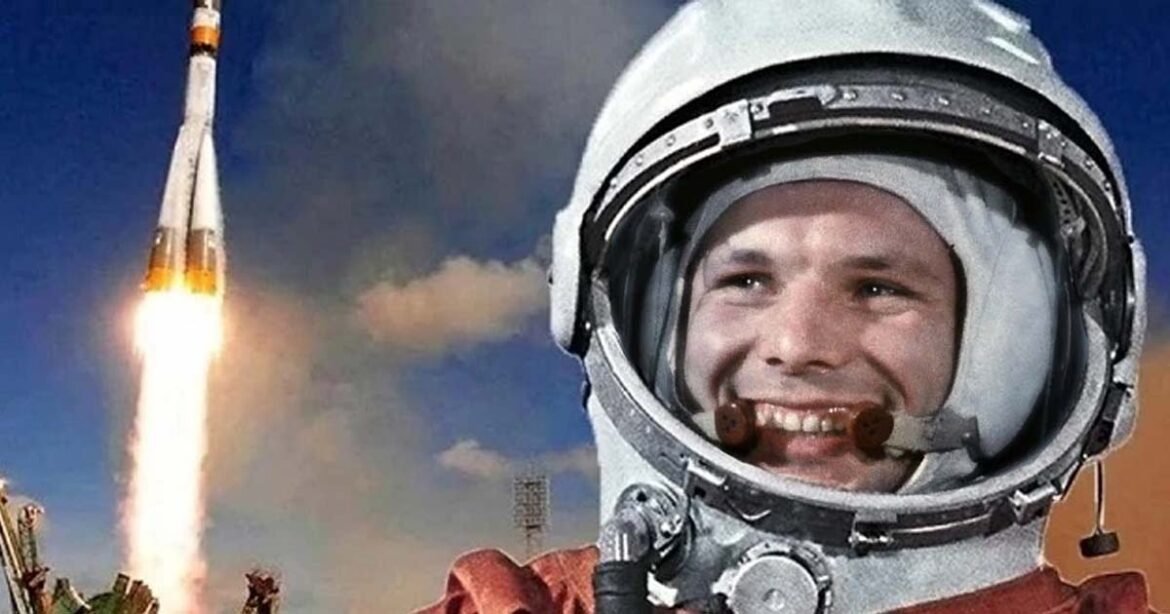A seminar was held at the Dhanmondi campus of the State University of Bangladesh (SUB) to celebrate the International Day of Human Space Flight. The seminar was organized in collaboration with the Russian House in Dhaka and the Bangladesh Astronomical Association (BAA). During the event, Director of Russian House in Dhaka Maxim Dobrokhotov discussed Yuri Gagarin’s childhood, professional life, historic space flight, and the impact of the Russian space program on global progress in this field.
Zikrul Ahsan, the President of BAA, mentioned that Bangabandhu Satellite-1 was launched in 2018, and the process for launching Bangabandhu-2 began with a memorandum of understanding with the Russian satellite launch service company, Glavkosmos. He expressed the hope of Bangladesh’s space journey in 2025 with active cooperation from Russia and expected the Russian House to play an active role in this regard.
The event ended with the screening of the documentary film “Yuri Gagarin, World’s First Space Man (1961)” on the initiative of the Russian House in Dhaka. Deans, heads of departments, teachers, and students from various faculties of State University of Bangladesh were also present at the seminar.
Who is Yuri Gagarin?
Yuri Gagarin was a Soviet cosmonaut who made history on April 12, 1961, when he became the first human being to travel into space. Born on March 9, 1934, in the village of Klushino in the Smolensk region of Russia, Gagarin grew up in a poor family and experienced many hardships during his childhood. Despite these challenges, he developed an early interest in flying and enrolled in a vocational school to learn about aviation mechanics.
After completing his education, Gagarin joined the Soviet Air Force and trained as a fighter pilot. In 1959, he was selected for the Soviet space program and began his training to become a cosmonaut. Gagarin was chosen for the historic Vostok 1 mission, which involved orbiting the Earth once aboard a spacecraft. On the morning of April 12, 1961, Gagarin climbed into the Vostok 1 spacecraft and was launched into space from the Baikonur Cosmodrome in Kazakhstan. He completed one orbit of the Earth in just under 108 minutes, reaching a maximum altitude of about 200 miles.

Gagarin’s flight was a major milestone in the history of human space exploration and made him an instant celebrity around the world. After his historic flight, Gagarin continued to work in the Soviet space program and was involved in training other cosmonauts. He also became a prominent international ambassador for the Soviet Union and traveled extensively to promote Soviet science and technology.
Tragically, Gagarin’s life was cut short when he died in a plane crash on March 27, 1968, at the age of 34. The circumstances of his death remain controversial, with some theories suggesting that it was the result of a sabotage plot by political opponents within the Soviet Union.
Despite his short life, Gagarin’s legacy as the first human being to travel into space has endured for more than half a century. He remains a symbol of human courage, scientific achievement, and the boundless possibilities of space exploration.
Russia’s historical success in space flight
Russia has a long history of success in human spaceflight, dating back to the launch of Yuri Gagarinin 1961. The country’s space program, known as Roscosmos, has achieved many milestones in space exploration over the years and has made significant contributions to the advancement of human knowledge and technology.
In addition to Gagarin’s historic flight, Russia has accomplished many other notable achievements in human spaceflight. For example, in 1965, cosmonaut Alexei Leonov became the first person to conduct a spacewalk, spending 12 minutes outside his spacecraft. Russia also launched the first woman into space, Valentina Tereshkova, in 1963, and has sent numerous cosmonauts on extended stays aboard the International Space Station (ISS) in recent years.
One of the key reasons for Russia’s success in human spaceflight is its longstanding commitment to developing and improving space technology. Roscosmos has a large team of scientists and engineers working on various aspects of space exploration, including spacecraft design, propulsion systems, and mission planning.
The agency also operates a range of launch facilities and has a strong partnership with the Russian aerospace industry, which produces high-quality equipment and components for space missions.

Russia’s success in human spaceflight has had a significant impact on the global space community. The country has played a key role in international collaborations, such as the ISS program, and has shared its expertise and technology with other countries around the world. Russia’s contributions have helped to advance scientific research in areas such as microgravity, life sciences, and materials science, as well as supporting human exploration and settlement of space.
Looking to the future, Russia is continuing to invest in its space program and is planning ambitious new missions to explore the Moon and Mars. The country’s ongoing commitment to human spaceflight is a testament to its pioneering spirit and determination to push the boundaries of what is possible in space exploration.


